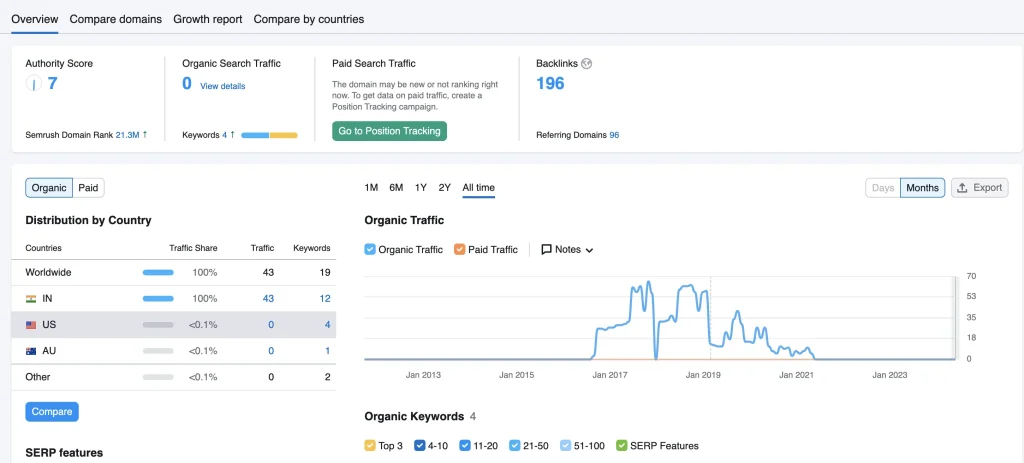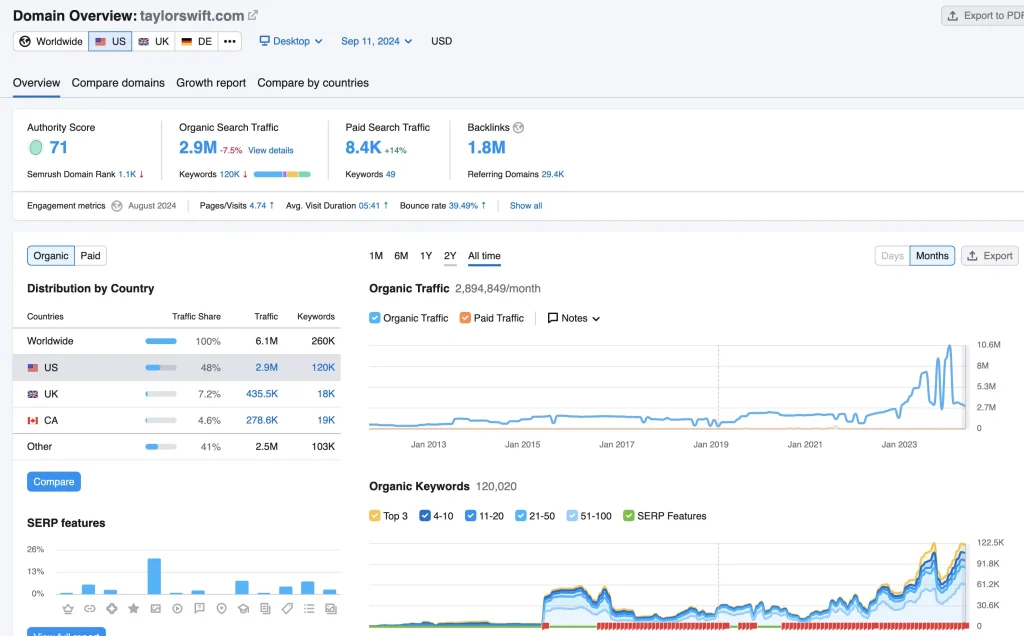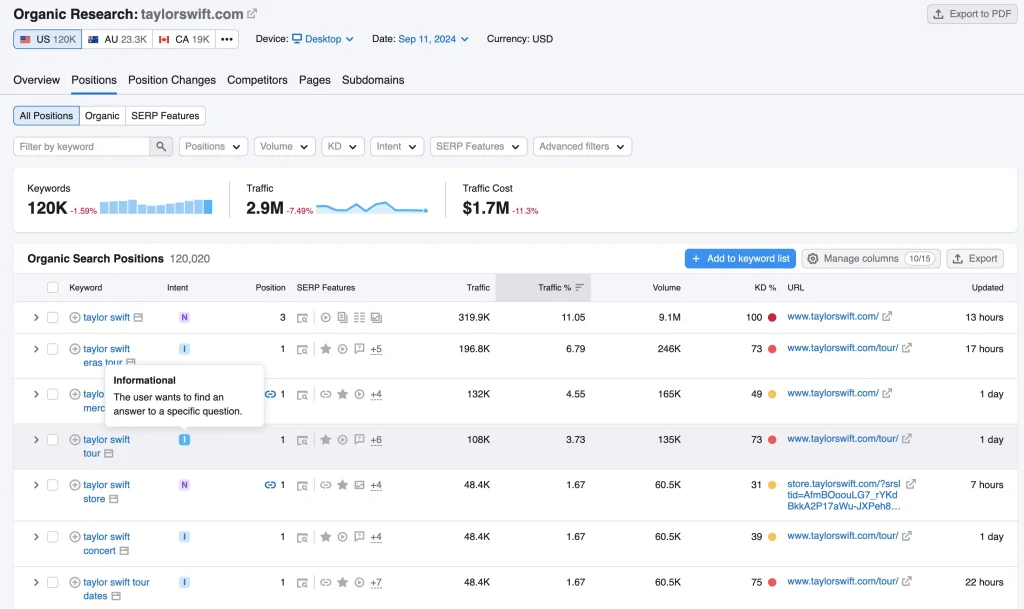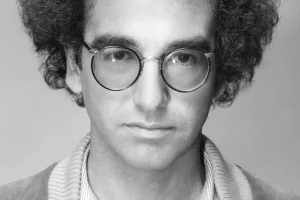Hi, Dave Fox here from Starscape SEO, and today, I want to talk about why musicians seem to have a hard time with SEO. I’ll give you 7 reasons why, because hey, lucky number 7 baby!
The reason I bring this whole thing up, is because I am a musician myself (check out my online mixing & mastering website here), and I will say that the deck is really stacked against musicians who are trying to benefit from using SEO best practices.
What Is SEO?
Just in case you don’t know, SEO, or Search Engine Optimization, is the practice of improving a website’s visibility in search engine results to attract more visitors.
For musicians, this means optimizing their websites and online content so they rank higher on search engines like Google, making it easier for fans to find them.

Music & SEO: It’s Just Different
While I love music, it’s never been my full time job. I record music, play music, and share it online, but it’s always been difficult to apply SEO to my music and have it make a huge difference, for a number of reasons, which have become increasingly annoying to me over time.
In fact, the more I learn about SEO, and the music business, it becomes clear to see what’s going on…
Indeed, as part of my SEO work, I’ve seen plenty of musicians’s websites which get no traffic, and if you’ve heard of “starving artists”, it’s no wonder.
Here’s a typical SEM Rush screenshot of one of hundreds of bands I’ve looked at who happen to have a website, and get basically zilch traffic.

Keep in mind, a musician’s website can look great, and function perfectly, but it’s something else that is plaguing them, and it has something to do with algorithms, and the way they’re designed.
So, what is it? Why do musicians struggle like this? I’m going to start off with some simple generalizations, and then get more and more specific. Bear with me here.
#1- Musicians Aren’t Usually Computer Nerds

Musicians are many things – creative, expressive, emotional, narcissistic, bold, literate, extroverted, introverted, romantic, contrarian – they’re complex beings who some say are in touch with the divine. But, one thing I’ve noticed that they’re usually NOT is huge computer dorks.
Sure, a lot of musicians seem tech savvy – they use smart phones, Instagram, Tiktok, and they know how to navigate the internet.
Some can handle setting up a website, but, overall, they’re not true computer nerds. They don’t “get off” on API secret keys, or noticing an increase in Google Search Console impressions.
When it comes to SEO, as a field of study, SEO is something generally of interest to data-driven geeks who study the internet like they’re a geography major studying a topographic map of rural Siberia.
Musicians generally are into music – shocker! But this is just the tip of the iceberg when it comes to how musicians struggle with SEO, because even if they don’t care about SEO, SEO is acting upon them, or lack thereof.
#2 – Musicians Have Dyscalculia and Time Blindness

This is sort of two-for-one, but if you’ve been around a lot of musicians in bands like I have, you might know that a lot of them are, let’s say, “free spirited”.
Yes, I know, more stereotypes, but play along (because it’s true). The musicians I’ve met are often against the capitalist patriarchy, and may know words like “Woodstock” and “Kerouac”. If there was a rally about something, they’d skip school to attend it.
That’s interesting, because many musicians do seek fame and glory, and – yes – money.
I’d say that for every “math rock” musician, there are 10 pothead hippies, and for every 10 pothead hippies. there are 100 free spirits who couldn’t budget a tour to save their life, or make a 2pm job interview for all the rice in China.
In order to be good at SEO, you need to be good with computers, and be extremely disciplined about numbers and timeframes.
Since most SEO geeks are often digital marketers, you simply can’t achieve success in this realm without tremendous determination, detached rational perspective, and scientific rigour in terms of collecting and studying data.
#3 – Musicians Are Data Delusional

This leads into my next point, which is that musicians tend to be self-obsessed, which prevents them from seeing themselves how Google sees them, which is with a detached indifference.
In fact, I’ve met a lot of people who can get by on just “thinking” they’re popular, based on their own estimation of themselves. And yet, using specialized SEO tools, I can see that, at least according to their own websites, no one even knows they exist.
Of course, one can’t disregard social media, and music streaming platforms. Some musicians can be very popular on Instagram, or TikTok, while still having websites that get 1 visitor per month.
It all comes to down to one’s goals, but my point is that you can have a Youtube video with several thousand views, and it doesn’t make you any money or really mean anything in terms of your true popularity.
It’s often the case with some musicians that Google is tracking them simply clicking on themselves. They aren’t aware yet of the “exclude IP” filter.
While I can’t claim to know people’s true aspirations, I’ve spoken to enough musicians, including some famous ones, to know that they wouldn’t know their websites traffic if it was shown to them, and, even if they had some vague inkling, many of them wouldn’t know what it meant or what they were trying to achieve with it.
As I said, they can be extremely delusional about data, and that’s not even an insult. Most people with websites aren’t tracking anything, and so their website, in many ways, becomes pretty much useless.
Anyway, so far, I’ve just pointed the finger at musicians and said why they are generally not great with SEO, but the real problem actually lies with the algorithms, not with them.
#4 – The Less Famous You Are, The Less Algorithms Care

Let’s look at Taylor Swift. It’s unlikely she’s an SEO expert, and yet SEO helps her career every day, as she does benefit massively from it.
But she’s not your average musician – she’s rich and famous. That being the case, who knows who was or is in charge of her website (probably management), but it seems to serve its purpose.
Here’s her website’s traffic right now…

Now, this is about 3 million people per month visiting this website Sounds pretty good, right? Now check this out…

Next, let’s analyze how SEO works when it comes to Taylor Swift.
Basically, people on Google search for her in 1 of 3 ways – 1) they type in her name, “Taylor Swift”, or 2) something related to her tour, or 3) something related to her merch. Ok, great. But does this mean she has a tight SEO game?
I’d say kinda, not really. She really only ranks for a few things, when there is so much more she could be ranking for. That said, she ranks for what matters the most, and that’s fine.
Keep in mind, Taylor’s website isn’t what got her all this attention. Just like every other major artist, their websites are part of the whole PR package.
With certain other businesses, they can actively go after keywords and traffic THROUGH their website, as opposed to being out there IRL and having the traffic come the outside world.
This is because other businesses can integrate keywords that don’t hinge on the primary brand name. They can create a gravitational pull through what are called “secondary keywords”.
In the case of Taylor Swift, a secondary keyword might be “boyfriend”, or “pregnant”.. as in, words that describe the main keyword, which is her name. The problem is that other people rake in cash from using those keywords, such as online news sites.
Some might argue that SHE should rank for those keywords, because she certainly could if she wanted to, as they are ABOUT her. Who better to rank for them?
My point here overall is that when you’re famous, it’s much, much easier to benefit from SEO as a musician, because Google knows you, Spotify knows you, and all of these platforms generally favour you, giving you top priority. If you’re on the other end of the spectrum – not famous – you get the opposite treatment.
#5 – Band Names & Song Titles Are Basically Anti-SEO

For the un-famous musician, here’s where it gets even worse. Let’s say you have a name like The Approachables.
Interesting name, but SEO only really benefits you having that name if you are known, and Google / Spotify isn’t about to help you get listeners unless you prove to them that you are popular, by having people search for you.
That’s right, it’s the fame game once again, and Google knows that you can’t fake having 100K different IP addresses search for you by name.
Google really only boosts the visibility of things that get searched for, and if you aren’t being really actually searched for, Google / Spotify is happy just to make you next to impossible to find.

Let’s go back to secondary keywords for a second.
Let’s say there’s a type of pizza that becomes suddenly very popular. Let’s say it’s pizza with bananas on top. Now let’s say your store is called Dave’s Pizza, and you happen to sell this type of pizza.
Ok, so now you’re literally the only pizza place in town selling banana pizza, and people start calling you to order these pizzas. In terms of SEO, the name Dave’s Pizza becomes the secondary keyword, because the real driver of the calls and orders is “banana pizza near me”, which you rank for (in this hypothetical scenario).
Back to The Approachables. Let’s say they release a song, called “Apple Betty” and it’s a huge hit. Great, now the band name becomes secondary to the song name in terms of keyword popularity.
Let’s say the band name, “The Approachables”, gets a solid 6000 searches per month, and suddenly this new song, “Apple Betty”, gets 150000 searches per month. Whichever keyword gets the most searches becomes primary, as it is driving most of the traffic.
The sad thing is that, for bands, neither their name or any song has any natural keyword strength, due to the fact that no one, or nearly no one, searches for them on any consistent basis.
At least with the pizza analogy, if we assume the pizza shop is local in some city somewhere, it will have an organic flow of at least some traffic just because it’s a pizza store in a city where people are always searching for pizza.
When it comes to bands, and their songs, they don’t get any traffic naturally, because they are unknown. The more known they are, the more traffic they get, but if they never do get known, their traffic naturally tends towards zero.
#6 – Music Streaming Platforms Are Overcrowded With Artists

Let’s look closer at streaming services for musicians – Spotify, Amazon Music, Youtube Music, Deezer, Tidal…there’s a long list.
When I upload my albums to my distro, Soundrop, it bills me about $15 per album, to have them show up on the major streaming platforms. Each music distro has different fees associated with it, but it’s usually not free.
Now, for me to make this money back (the $15 per album, multiplied by however many album releases), I’d need about 100000 or more streams across different platforms, across different countries. This hasn’t happened for me, because my music doesn’t have that inherent keyword value, similar to most artists.
You need to go through the distro, as there’s no direct way to get hooked up with Spotify. The music streaming platforms have deals with the various music distros, who have deals with record labels, and so forth. Indie musicians can get on the distro, and pay to have their music sent to the streaming platforms.
That’s all fine, I guess. As far as SEO goes, people could theoretically find you, because you DO technically have a page upon which to be found, but if you have no fame or notoriety upon which to draw your SEO strength, the music streaming platforms leave you alone. They know you’re there, but you are at priority zero.
Plus, think of this. There’s 11 million artists on Spotify. That’s a ton! The population of the USA is 333 million right now. There’s SO MANY ARTISTS out there right now, compared to the population at large. That’s like 1 in 30 people being an artist on Spotify, waiting to be discovered.
So, unless you’re already known, how is anyone going to find you on Spotify? Especially when the distro’s humble attempts to provide you with complimentary SEO for your tracks goes unnoticed, because it’s just not enough to have any effect. Popularity is really the only metric that moves the needle…
#6 – Music Streaming Platforms Limit Artists’ Reach

Sure, the distros do offer some semblance of SEO to their users. They’ve got “tags”, they’ve got “genres”, and “descriptions”, and those meta tags are in fact for SEO purposes. You fill them out, you feel good. Job done?
The problem is, those tags don’t help much in the way of people who don’t already know you. All streaming platforms have basically similar search algorithms, from what I’ve seen, and popularity is the driving force behind visibility.
Like Google itself, streaming platforms organize the music they have into a searchable index. From there, music platforms use the meta data you and every other band and artist feeds them to create their catalog. The catalog is then searchable to the public, but the search bias is towards artists who come up more in other searches.
For instance, if your band is “rock” and The Rolling Stones are “rock”, according to the platform’s own meta data, the streaming platform will algorithmically see which of you gets more searches, and offer the more popular band first. Does that mean you’ll appear 2nd? Not so fast…
So then you have to wonder, how many “rock” bands are more popular than you? If the answer is exactly 6 million, then you are 6 000 001.
Now, for a business like the one I made up, Dave’s Pizza, the competition is presumably local. For musicians on Spotify, their competition is global.
In other words, your competition is every other band who sounds somewhat like you (tagged as “rock”), and if they have more fans than you, you get shown somewhere after them.
If there are 60000 bands more popular than you, you won’t be shown in any search for that genre, unless the person searching goes through 5000 pages worth of random bands, which is impossible, because they won’t display 5000 pages sequentially.
All in all, your SEO efforts, within the boundaries of the music streaming platform you appear on, go no further than those few boxes you fill out when you first add your song to the distro.
Even if you fill out absolutely everything, the streaming platform, and Google, aren’t going to show you ahead of someone who they can see is more popular than you. That’s the pecking order and you need to be aware of it.
#7 – Can’t Quite Process the Harsh Reality (Cognitive Dissonance)

So what now? If you’ve read this far, you can see that we, as musicians, collectively face some sort of dilemma. Let’s recap as to why.
Compared to the overall population, there’s an increasingly disproportionate number of musicians who have their music streaming online. I didn’t even really delve into this too much, but I think it’s clear to see this, even if we just look at a few rudimentary numbers of how many artists are on Spotify compared to the overall population. It would be like having 1000 McDonald’s operating in a city of 100000, all over the world.
To boot, as musicians, we pay to use music distro platforms, and then we proceed to not make our money back (ever, really), because music streaming pays so little – from what I recall, it’s like a 4th of a 10th of a cent? It’s not much. Even with thousands of streams, we make hardly any money at all. That too is a whole other blog post.
Of course, if we make our money playing gigs, or simply paying for music distro with other work we do, one can argue that the cost of being “out there” on music streaming platforms is arguably not that much, but if we think about it in terms of paying the cost of the distro back with money we make from streaming alone, it becomes a much less appealing proposition.
And we also know that the more creative you are, in terms of a band name or a song title, none of that really helps you get seen. It’s not “unfair”, but people can’t search for what they don’t know about, and if you aren’t making them aware of you in some way, it doesn’t help your cause. It just means that if your band is a keyword, it’s not a popular keyword. It’s all about popularity, one way or another.
Most band’s names are secondary keywords to the genres they belong to, and their songs names are tertiary to their band name, in terms of “rank”, their overall rank is non-existent, leading to SEO that, while being applied perhaps correctly, will never help them in a million years without some outside proof that people out there love you.
The overall point here is, musicians, if they can get over themselves, still face a literal ice wall of indifference from computer algorithms that can casually check to see their actual popularity, which often is zero, and then they’re out of luck. If it weren’t for the fact that music itself is supposed to be fun, it’s a bleak scene.
Final Words

I won’t tell you what I think you should do, but I will say what I am doing and what I will do, as a musician, to counteract some of these naturally occurring issues in the music industry, as it pertains to SEO and online affairs.
I’d say it’s good to realize the truth, so that you can deal with it. I really don’t like believing in things that aren’t true. Like, most musicians know that music streaming pays almost nothing, but not everyone seems to know this. Or, they know it, but they don’t realize actually how very, very little streaming does pay. Even some famous musicians like Iggy Pop have touched on this point and it was a while ago he did so. Maybe Metallica, as rich as they are, did have a valid point about Napster’s users being thieves for ripping off artists.
As far as I’m concerned, I am one of those musicians who likes to handle everything themselves. I’m not an artist who just does the music and lets other people handle the rest. I actively pursue the different parts of the business, including marketing. Still, there are different ways to approach marketing, and I have my own methods. I know there are so many things that artists can do, like being on all the different social medias, and being very self-promotional, that will get them closer to the elusive thing called “fame and fortune”.
To me, that’s not really the goal. If you really want to know my true aspirations, you have to get to know me, and, to do that, you might as well listen to some of my music. I’ll leave something below here and you can subscribe and follow from there. Leave a comment if you like!

